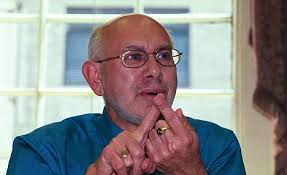By Andrew Warshaw
April 2 – FIFA’s radical reform of the status of agents, brought into effect on April 1, has caused an immediate backlash. The deregulation move whereby agents are now the responsibility of national associations rather than world football’s governing body is designed to weed out rogue parties and make for a more transparent process.
Registration systems will now have to be set up by national associations, with “intermediaries” as they are now called rather than agents named for each deal they are involved in. They will have to sign a declaration that they have a impeccable reputation and have no criminal record.
In short, instead of being licensed with FIFA, they will be supervised by national federations, ostensibly in order to crack down on unlicensed transactions.
The changes include all transfer deals being annually published online but not necessarily the details of fees paid. There will also be a total ban on agents’ fees for players under the age of 18 plus a recommendation for a three percent cap on deals generally.
FIFA hopes the new system will prevent money-laundering, stressing that currently only 25-30% of transfers globally are conducted by licensed agents.
But the UK-based Association of Football Agents has filed a complaint with the European Commission saying the new regulations are a restrained of trade and will cause chaos.
“This is a FIFA initiative. On the basis of ‘if it ain’t broke, why fix it?’ – the regulations were working nicely here,” AFA chief Mel Stein told Sky.
“The fact of the matter is that we’re being globally punished for things that are happening in South America, Africa and Eastern Europe. Stuff over which we’ve got no control. It’s the recommendation that we’ve challenged. We’ve brought our challenge against FIFA.
“I think it’s going to create anarchy and everybody is going to be sorry about it. FIFA couldn’t cope so they decided to hand it over to the individual territories.”
“The French Federation have said ‘we’re not doing it – we’re only going to deal with licenced agents’. Every walk of life where people are represented to get the best contract they can, there is freedom of trade. How is it that there is simply a selective persecution of football agents for three per cent? And why three per cent? The industry norm over the years has kind of developed at five per cent.”
Stein’s body argues the new rules are totally counter-productive. “We’ve worked really, really hard to scrub up the image of agents over the years,” he said.
“Now we’re being faced with an influx of people we simply don’t know. They’re untrained and have no experience whatsoever, and all they need to do is to be able to write their name, not have a criminal record – and you can represent anybody you like. That cannot be right.”
Former English FA chief executive Mark Palios described the reforms as “half-cooked”.
“This is, again, FIFA trying to fix something that’s a worldwide problem,” said Palios. “It’s a case of ‘one-size fits all’ that doesn’t actually fit at all in terms of this country.”
“What I’m most concerned about is that almost anybody could be an intermediary if they pass the equivalent of the ‘fit and proper person’s test’. People will always find a way around regulations, and that is one of the problems FIFA has.”
FIFA argues the new rules will help end confusion over club representatives and players’ agents – sometimes the same person – and their respective financial obligations, often resulting in conflict of interest.
“The aim of the review was to propose a new, more transparent system that would be easier to administer and implement, resulting in improved enforcement at national level,” FIFA said.
Contact the writer of this story at moc.l1745186794labto1745186794ofdlr1745186794owedi1745186794sni@w1745186794ahsra1745186794w.wer1745186794dna1745186794

